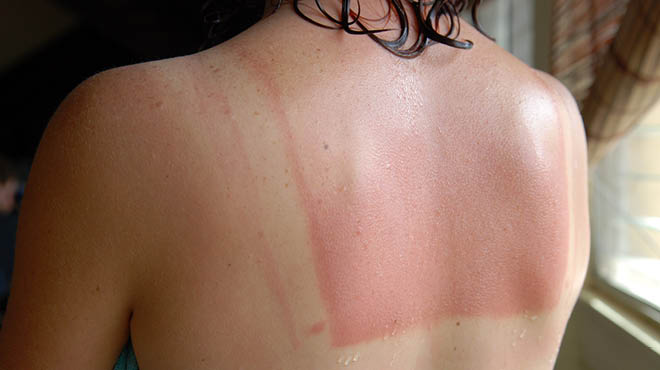What to do about dry skin

Dry skin can be a temporary condition that people may experience at some point in their lives, especially during the winter. For other people, dry skin can be a lifelong condition.
Skin may look and feel flaky, itchy, rough or scaly when dry. Although skin often is driest on your hands, arms and lower legs, this varies from person to person. Signs and symptoms of dry skin depend on your age, health, where you live, time spent outdoors and cause of the problem.
Dry skin is likely to cause symptoms, including:
- A feeling of skin tightness, especially after showering, bathing or swimming
- Deep cracks that may bleed
- Fine lines or cracks
- Gray, ashy skin in people with dark skin
- Itching, also known as pruritus
- Redness
- Skin that feels and looks rough
- Slight to severe flaking, scaling or peeling
Common causes of dry skin
You may hear dry skin called xerosis or xeroderma. It has many causes, including aging, cold or dry weather, sun damage, certain medical treatments, harsh products like soaps or detergents or overbathing. Anyone can develop dry skin, but some people have an increased risk due to their environment, occupation, health history or hobbies.
Take these steps to help your skin retain moisture and decrease dryness:
- Moisturize.
Moisturizers provide a seal over your skin to keep water from escaping. Apply moisturizer several times throughout the day. Thicker moisturizers tend to work best. Use a moisturizer with sunscreen or a broad-spectrum sunscreen with an SPF of at least 30 before going outside. Apply sunscreen generously, even on cloudy days, and reapply every two hours. - Use warm water and limit bath time.
Long showers or baths and hot water remove oils from your skin. Limit your bath or shower to five to 10 minutes, and use warm, not hot, water. - Avoid harsh, drying soaps.
It's best to use cleansing creams, gentle skin cleansers and bath or shower gels with added moisturizers. Use hypoallergenic soap or fragrance-free soap without alcohol. - Apply moisturizers immediately after bathing or washing hands.
Gently pat your skin dry with a towel so some moisture remains. Immediately moisturize your skin with an oil or cream to help trap water in the surface cells. - Use a humidifier.
Hot, dry, indoor air can parch sensitive skin and worsen itching and flaking. A portable home humidifier or one attached to your furnace adds moisture to the air inside your home. Be sure to keep your humidifier clean by following the manufacturer's instructions. - Choose fabrics that are kind to your skin.
Natural fibers like cotton and silk allow your skin to breathe. Wool sometimes can irritate skin, even though it's also a natural fiber. Wash your clothes with detergents free from dyes or perfumes, which can irritate your skin.
If dry skin causes itching, apply cool compresses to the area. To reduce inflammation, use a nonprescription hydrocortisone cream or ointment containing at least 1% hydrocortisone.
If your dry skin still is inflamed, painful, has open sores, or disrupts your sleep and daily activities after lifestyle modifications and at-home treatment, see your primary care provider or a dermatologist.
Megan Johnston Flanders, M.D., is a physician in Family Medicine and Hospital Medicine in Cannon Falls, Minnesota.



